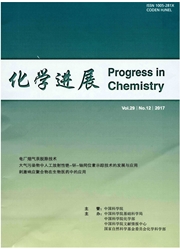

 中文摘要:
中文摘要:
固体氧化物燃料电池(SOFC)和固体氧化物燃料电解池(SOEC)作为新一代的能源转化装置,凭借其清洁、高效的能源转化优势,非常具有技术吸引力。为了将SOFC和SOEC商业化,操作更加持久、高效和经济,中低温的运行温度成为当前国际上研究的主要方向,其中提高氧电极材料的氧还原反应/氧析出反应(ORR/OER)活性是研究的关键。本文主要阐述了原子尺度分子模拟分析和原位实验测试表征对混合离子电子导体氧电极材料中氧迁移规律和传输机理研究的重要作用,推进传统材料向新型氧电极材料和结构的发展;归纳和综述了近期热点的混合离子电子导体(MIEC)氧电极材料、相应的离子传输路径、各向异性结构及晶格动力学;介绍了当前采用的先进研究手段和方法,并重点介绍了原位X射线光电子能谱(XPS)和俄歇电子光谱(AES)探测材料的表面化学组成和结构,原位的方式可以将致密薄膜中几纳米到十几纳米的结构可视化,在原子层面上研究氧电极材料中带电缺陷的形成和迁移;并基于原子尺度的密度泛函理论(DFT)计算和近期分子动力学模拟(MD)的研究进展对传统材料和新型材料中的氧迁移机理进行解释和分析。最后,简要综述了清华大学核研院在固体氧化物池氧电极方面的研究进展。
 英文摘要:
英文摘要:
As a new generation of energy conversion devices, solid oxide fuel cells (SOFC) and solid oxide electrolysis cells (SOEC) are of great importance with the advantage of highly efficient energy conversion in a clean way. For the commercialization of SOFC and SOEC technologies, operation at the intermediate-low temperature (IT) is the current major research direction all over the world, which are beneficial for the operation of SOFC and SOEC more durably and economically. The key point is how to improve the oxygen reduction reaction (ORR) or oxygen evolution reaction (OER) activity of oxygen electrodes. In this review, the important roles of atomic-scale molecular simulation and in-situ experimental characterization are mainly illustrated to provide insight and understanding on the oxygen transport mechanism analysis. These fundamental studies could put forward the progress from traditional materials and structures to novel designs and concepts. The recent R&D oxygen electrodes of mixed ionic electronic conducting (MIEC) materials, the corresponding ion migration paths, anisotropic structures and lattice dynamics are summarized in detail. The current advanced research methods and characterizations are introduced focusing on the in-situ X-ray photoelectron spectroscopy (XPS) and Auger electron spectroscopy (AES) for probing the surface chemical composition and structure of materials. With in-situ methods, a several nanometers to tens of nanometers structure of the dense film could be visualized that made the study of the formation and migration of charged defects of oxygen electrode material feasible. Oxygen transport mechanisms in the traditional materials and novel materials at atomic scale are analyzed by the results of density functional theory (DFT) calculations and molecular dynamics (MD) simulations. Furthermore, the research progress of oxygen electrodes at INET in Tsinghua University is briefly introduced.
 同期刊论文项目
同期刊论文项目
 同项目期刊论文
同项目期刊论文
 期刊信息
期刊信息
